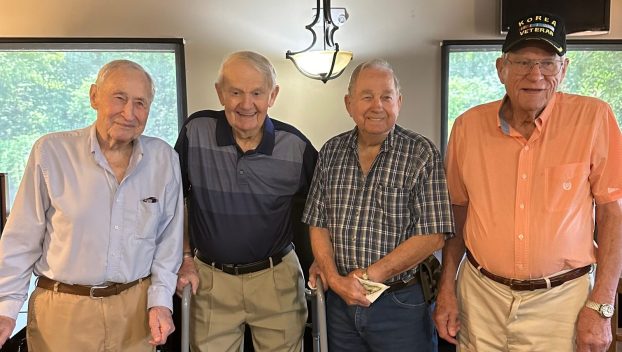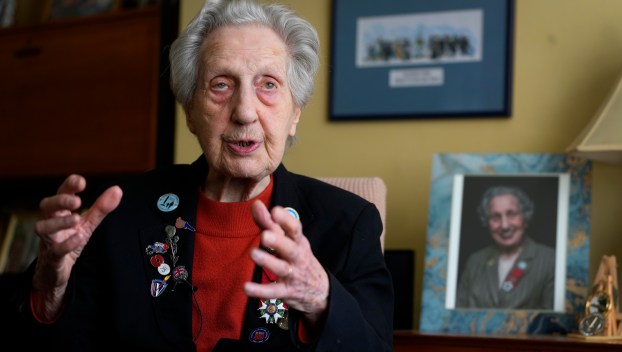
Local News
Gone but not forgotten: Veterans of the 1343rd Engineering Combat Battalion gather for reunion
In a display of longstanding camaraderie, four surviving members of Company B, 1343rd Engineering Combat Battalion, met for ... Read more

In a display of longstanding camaraderie, four surviving members of Company B, 1343rd Engineering Combat Battalion, met for ... Read more
Normandy coastal weather is crisp and bracing. Winds and frequent rains appear, diminish and reappear. The sky stays ... Read more
June 6 marks 80 years since Allied troops bravely stormed the 50-mile stretch of beach in Normandy, France ... Read more

June 6, 2024, marks the 80th anniversary of D-Day, the Allied invasion of Normandy, France, which was a ... Read more

LONDON (AP) — What did you do in the war, Granny? For British women who came of age ... Read more